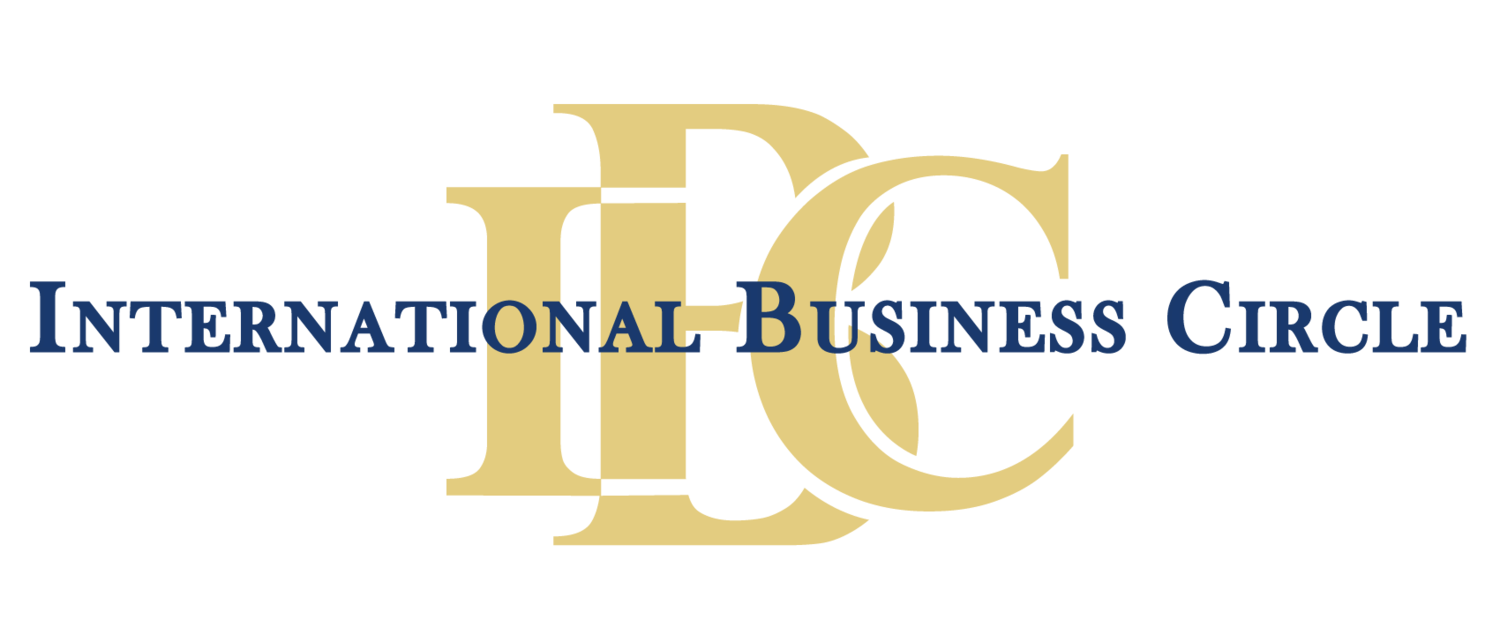Navigating the Unseen: 6 Key Takeaways from the IBCircle CEO & CFO Global Roundup
Just before the Summer Break, on Thursday, June 26, 2025, business leaders converged at Wipfli’s Offices in Denver for the IBCircle CEO & CFO Global Roundup. This exclusive event, organized by the International Business Circle, Inc. (IBCircle) in partnership with Wipfli, brought together over 50 CEOs, CFOs and investors to delve into strategic insights on forthcoming disruptors and opportunities for businesses both locally and internationally. The core objective was to discuss critical issues that every CEO and board should be addressing, moving beyond common topics like tariffs, tax credits, and geopolitical risks.
The overarching sentiment of the roundup was the unprecedented level of uncertainty dominating the current global business environment. Gary Montes de Oca highlighted this, noting over 3,100 mentions of the word" uncertain" or "uncertainty" in US public company earnings calls in the last 90 days – more than during the 2008 financial crisis or COVID-19. This reality means traditional linear strategic planning, based on "historical industry assumptions," is no longer sufficient. Companies have even resorted to "dual earnings release forecasts" due to the unpredictability.
Speakers identified several critical disruptors that demand proactive engagement:
The Strategic Disruption of People:
Shrinking Workforces: Many industrialized nations, including China, Japan, South Korea, 22 of 27 EU nations, the UK, and the US, are experiencing a shrinking workforce or declining labor participation rate due to declining birth rates and an aging population.
AI as a "Lifeline": Contrary to fears of job displacement, AI may be a necessary "lifeline" to keep global commerce functioning due to the labor shortfall in so many industrialized nations .
Talent Acquisition and Retention Boards and CEOs must prioritize talent acquisition and retention, as failing to do so poses a "serious strategic threat".
Multi-Generational Workplaces: Managing four generations (Boomers, Gen X, Millennials, Gen Z) being in the workforce for the first time in history with "very different frames of mind, values, incentives, compensation, titles, transparency, circularity, purpose" adds significant complexity to unifying teams.
Decreasing Market Size: An aging population also means "the size of some markets will decrease," posing risks for companies relying on "incrementalism" or "historical norms".
Energy Transition and AI Dependency:
AI's Insatiable Power Need: A critical, often overlooked, disruptor is the immense energy required for AI. States like Texas, Utah, and Ohio have already seen AI-driven power requirements exceed their current capacity, and Silicon Valley Power has stopped accepting applications for data centers.
Infrastructure Deficit: The existing energy grid lacks the "infrastructure to support AI today".
Global Race for Energy Dominance: While the US has decommissioned more nuclear power than it has built, China is aggressively pursuing nuclear energy, aiming to be "the provider of half the world's nuclear power".
Necessity for Breakthroughs: For AI to become "omnipresent," there "has to be scientific breakthrough in energy generation and storage," otherwise, the AI world will be characterized by "haves and haves nots".
Global Innovation and Tech Leapfrogging:
Non-Western Deep Tech: Significant "deep tech at lower cost that may leapfrog our current paradigm of Western innovation" is emerging from non-Western places like "Pune and Jakarta and Shenzhen".
The BYD Example: China's BYD, the world's largest electric carmaker, plans to introduce full autonomous capabilities into its vehicles at no additional cost to consumers next year, challenging Western dominance. As Montes de Oca noted, "at some point, innovation wins" over protectionism.
Erosion of Trust and the "Authentic Economy":
Post-Truth Paradigm: Widespread disinformation, deep fakes, and AI-generated content are leading to a growing "erosion of trust from the consumer, in brands, in leadership, in governments".
Savvy Consumers: Younger generations, unlike their predecessors, have been "trained not to trust anything".
Value of Creativity and Empathy: While AI can generate content, it "can't do empathy," underscoring the growing value of human creativity and authentic connection.
The "Authentic Economy": This environment calls for an "authentic economy where everything has to be verified". Companies must treat their reputation and trust as "an asset to secure and as an asset to earn," as a "100-year-old reputation can be destroyed overnight by something that was AI generated".
Regulatory Fragmentation and Dynamic Global Tax Landscape:
Regulatory Acceleration: A "regulatory acceleration is happening around the world" as governments aim to become the de facto standard in areas like data privacy, climate, and AI.
Compliance as a Design Constraint: Organizations must treat regulatory frameworks not as mere "compliance activity" but "as a design constraint," adopting a proactive approach due to "significant global fragmentation in guidelines and policies".
Rapid Policy Shifts: Magnolia Movido, Wipfli's Head of International Tax, provided a stark illustration of this volatility, citing the immediate impact of the US "America first trade policy" leading to 10% (potentially 25%) reciprocal tariffs and the proposed "revenge tax" (Section 899) which was then changed following the G7 Summit. Movido humorously noted that her international tax advice is now continually being updated due to this extreme dynamism, with new policy statements instantly changing the business landscape. Despite this "unprecedented" uncertainty, the advice is clear: "you cannot do nothing." Companies must develop multiple strategic paths and be proactive about the forces that will shape their businesses and consumers ".
Speaker Insights and Practical Applications:
Sean O'Neil (Co-CEO, Cardinal Peak) - Bio: Observed how "uncertainty and the tightness of money has really affected companies’ willingness to commit to some projects." However, the demand for large AI projects has remained strong. He stated, "AI's not going to take your job, but somebody with/using AI is going to take your job if you don't start to embrace it." He also noted that their company, across all departments, is using AI tools to handle "grunt work."
Gary Montes de Oca (CEO/Investor) - Bio: Emphasized that "the technology always follows the science," underscoring the need for R&D investment. He stated that "the winners in global commerce are not going to be those who optimized yesterday. They're going to be people who had the courage to confront the unseen, invest in the overlooked and design for disruption." He criticized strategic planning that is "completely blind, ignoring or naive to some of the truly transformative things that are coming."
Magnolia Movido (Partner and Head of International Tax, Wipfli) - Bio: Illustrated the real-time impact of regulatory shifts. Her experience with the "America First" tariffs and the proposed "revenge tax" (Section 899) from the "One Big Beautiful Act" demonstrated the constant need for continually updated international tax and trade expertise. The immediate shift in policy following G7 discussions highlighted the extreme volatility and the necessity for businesses to prepare for multiple scenarios ("option A, option B, option C") rather than waiting for certainty.
The summit concluded with a stark warning and a call to action for leaders: the global business environment is no longer linear or predictable. CEOs and CFOs must broaden their "paradigm outside of the things that you see and talk about every day," as current metrics are "universally not expansive enough to contemplate some of the things that will transform your organization". Proactive engagement with technological, demographic, energy, and regulatory disruptions, coupled with a renewed focus on building authentic trust, will distinguish successful organizations in this new era of unprecedented uncertainty.
Watch this space. We’ll be delving deeper into these topics and more potential disruptors over the next few weeks.
IBCircle Members can download the full event report/briefing document here
Check out the Cardinal Peak blog post on this event for more insights: https://www.cardinalpeak.com/blog/business-ai-disruptors

